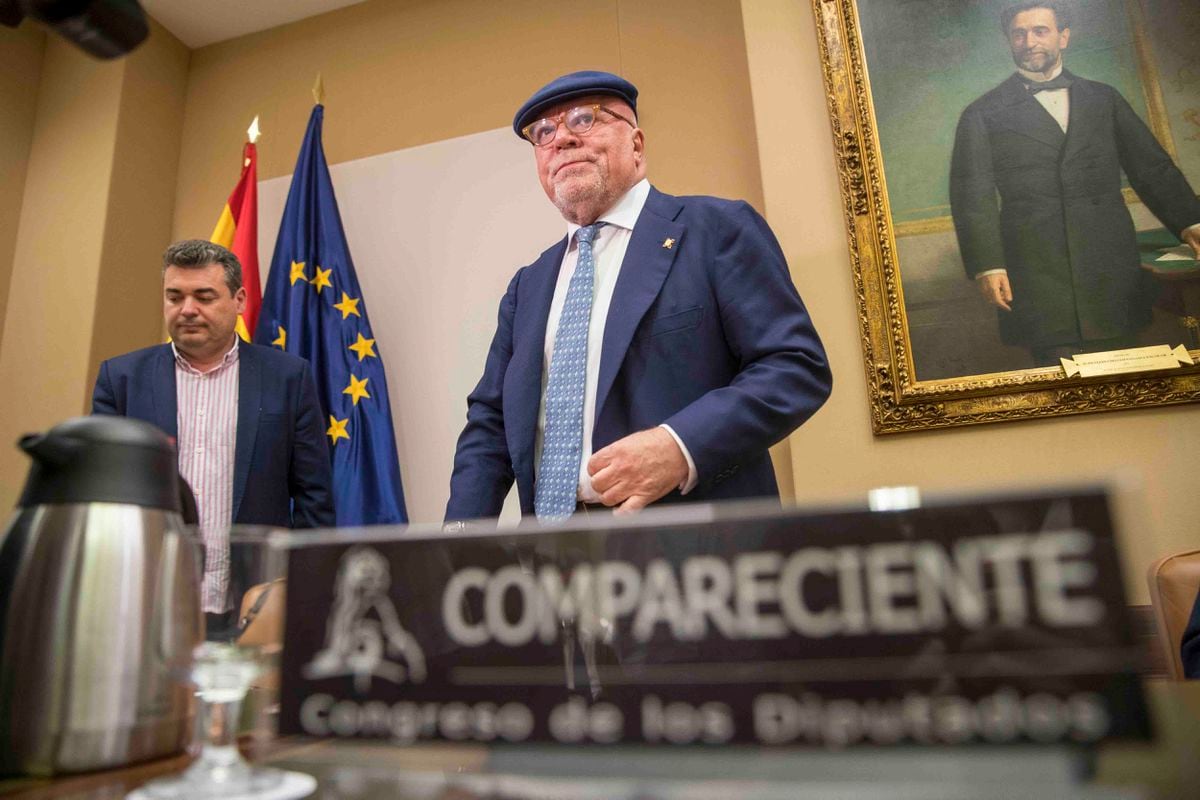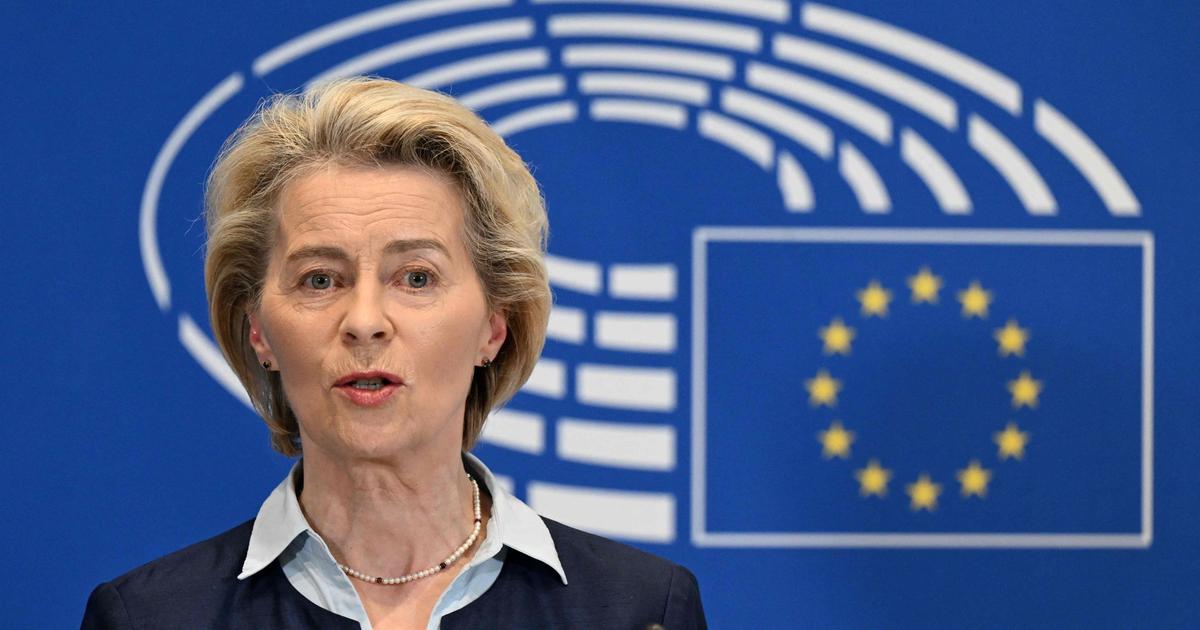The retired commissioner José Manuel Villarejo is in his sauce in the appearances of the congressional investigation commissions and this Wednesday he demonstrated it again. He went for the third time in recent years to expose in this case what he knew about the so-called Operation Catalonia, mounted in 2012 during the governments of Mariano Rajoy to, through a campaign of information poisoning with alleged police reports loaded with serious accusations of corruption, discredit the main Catalan secessionist leaders. As Villarejo has stressed on several occasions, it was the National Intelligence Center (CNI) who "coordinated, designed and directed" that operation to "neutralize" and "deactivate" the Catalan independence movement, although he also assured that both he, the National Police and the Civil Guard had intervention in it. Even so, in the appearance the retired policeman has not provided any new or relevant information about the sewers of the State.
Villarejo's appearance has basically been a settling of accounts against the secret service and, above all, against the then director, General Félix Sanz Roldán, now retired, with whom he is strongly confronted with crossed denunciations in the courts. And, along the way, he has once again started his fan against everything and everyone: the "unserious" governments of the PP; King Emeritus Juan Carlos I; Former fellow commissioners, politicians, journalists and editors of various media outlets. His memory was very selective, always channeled to present himself as an "undercover agent" who was actually a secondary pawn in Operation Catalonia, in which he participated, he stressed, because of his status as a servant of the State.
The controversial commissioner thus premiered the third parliamentary investigation commission on the political and police sewers allegedly sponsored by the Ministry of the Interior in the stage of Jorge Fernández Díaz, against political adversaries of the PP. This new investigation in Congress, which seemed doomed to failure, began with the loudest compareciente two days before the start of the campaign for the municipal and regional elections of 28-M, although he will not allow more appearances until after the elections. Before Villarejo's intervention, the commission agreed to set a deadline until next Friday for the parties to present a new list of requests of up to eight people to appear in the future, and that will be voted individually on Wednesday of next week.
In theory, this new version of the commission of inquiry into the police sewers of the State was designed to investigate mainly about the alleged pressures of Rajoy's executives to directors of the Andorran Private Band so that they provided evidence of the fortune that hid in that entity the former Catalan president Jordi Pujol and his family in exchange for preventing the intervention of the bank for risk of money laundering. For those facts, an Andorran judge charged almost a year ago for alleged coercion and falsification of documents to former President Rajoy, the former ministers of Finance, Cristóbal Montoro; and Interior, Jorge Fernández Díaz, the former Secretary of State for Security, Francisco Martínez, and the former Director General of the Police, Ignacio Cosidó. However, the deputies present in the committee hardly asked Villarejo anything about that action or about that alleged interference. The interests of each party were different.
The spokesman of the PSOE, Felipe Sicilia, focused on knowing if Villarejo had come to have direct contact or by telephone then with President Rajoy himself. The commissioner, who shielded himself several times in that he is now 72 years old and his memory fails not to go into details, only came to remember that he contacted Rajoy, but does not know very well if directly because he passed the mobile phone the then secretary general of the PP, María Dolores de Cospedal, when the commissioner was with her or because politics transferred a message of congratulations from the then president for the results of Operation Catalonia.
What Villarejo did confirm is that this operation existed, that it was an intelligence and state operation and that it sought to "prevent an organized and structured part of Spain from maintaining the possibility of independence and what this entails." Sicilia insisted a lot on relating the implementation of the same directly with Rajoy, but the commissioner only came to affirm that the initiative had been "designed by the Presidency of the Government, although it was carried out by the vice president", in reference to Soraya Sáenz de Santamaría and the secret service, very opposed at that time to Cospedal, which was the one with which Villarejo maintained a relationship.
José Manuel Villarejo, this Wednesday in Congress.Claudio Álvarez
The commissioner has demonstrated in all his appearances in Congress his obsession with the CNI and its then responsible, Sanz Roldán. This Wednesday he pointed out that the secret service then had "constant relations with the PP of Catalonia" to determine objectives and, even, that one of its commanders came to propose in a meeting of Operation Catalonia to remove the tanks in Barcelona. Villarejo has also taken the opportunity to once again encourage the conspiracy theory in the jihadist attacks in the Catalan capital and Cambrils (Tarragona) in August 2017, which left 16 dead and dozens injured, by ensuring that he transferred information that something was being prepared and that it was the CNI that decided not to investigate it. Of course, as on previous occasions in which he has referred to this event, he has not provided more proof than his word.
The questions raised to Villarejo by the spokesman of the PP, Luis Santamaría, focused on trying to show that the commissioner, who has worked for ministers of all governments, has been involved in similar operations for previous executives of the PSOE and asked him about alleged irregularities in the origin of the Gürtel case, which has ended up uncovering the box b of the popular, or the GAL case, about state terrorism against ETA in the stage of the socialist governments of Felipe González. The intervention of the deputy of Vox, Juan Carlos Segura, was chaotic. Not only did he not question the objectives of Operation Catalonia against independence, but it seemed to him that those he identified as the "internal enemies" who wanted to harm Spain had been "spied on little and badly."
The spokesman of Unidas Podemos, Pablo Echenique, focused his entire speech on what he called "the media sewers" that pointed "with their cannons" against some political protagonists, especially from his party. He asked about Antonio García Ferreras, a journalist from La Sexta; by Ana Terradillos, then at SER and now at Cuatro Televisión; by Mauricio Casals, president of Atresmedia; and by Ana Rosa Quintana, from Tele 5. Villarejo did not speak ill of any of them, with whom he admitted to having had a lot of relationship. The commissioner did specify that the Granadinas report and the Pisa report (both on alleged irregularities in the financing of Podemos that have been demonstrated as hoaxes) that were aired by some media despite their lack of credibility, was "a false and crude garbage".
During the interrogation of the ERC spokesman, Gabriel Rufián, the policeman returned to his knowledge of actions to protect the crown and the king emeritus and commented that he had already warned of some behaviors of Juan Carlos I and General Sanz Roldán, whom he accused of hiding the irregularities of the former head of state. "The crown is a fundamental institution, but it is not protected by hiding or altering, but by correcting mistakes," he said. Villarejo assured, again without providing evidence, that the former director of the CNI has gone in recent years several times to Abu Dhabi, where the emeritus king resides since 2020, "to talk about its economic problems and opaque societies." And he added that in the CNI "there are super reserved funds", over which there is no control, "for unspeakable operations", and gave as an example an alleged entry into the apartment that Corinna Larsen, former lover of the king emeritus, had in Monaco.
Subscribe to continue reading
Read without limits
Read more
I'm already a subscriber














